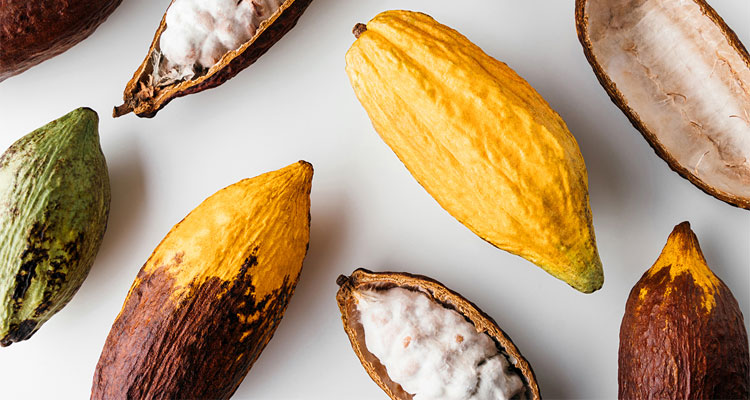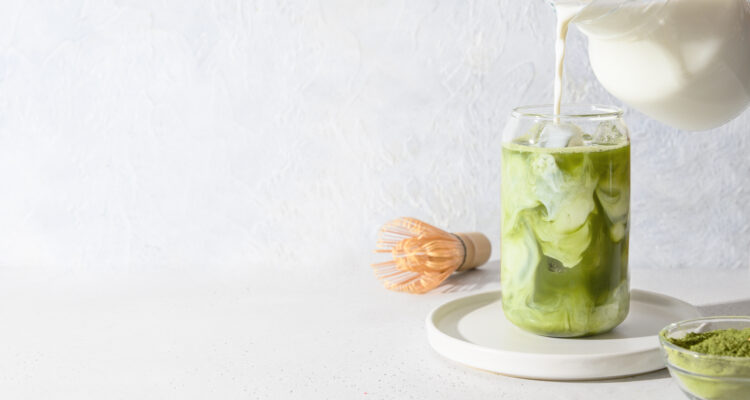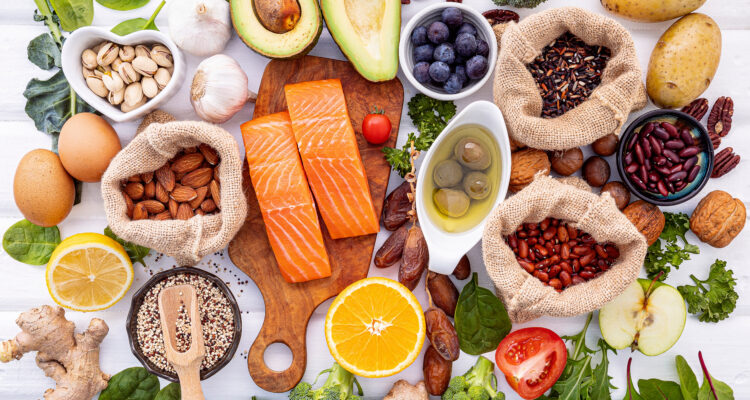Chocolate is a favourite at any time of the year, and with such an array of amazing recipes and photos being shared over the web, you’d be hard-pushed to find somebody who isn’t craving a chocolatey treat. But could there be hidden health benefits to our favourite indulgence?
For nearly 2,000 years, the irresistible allure of chocolate’s taste, smell, and texture has captivated people worldwide. Cocoa, the key ingredient, offers health benefits. Opting for high-quality cocoa powders like raw cacao powder can provide a rich chocolate flavor without excessive sugar and fats.
But, how is chocolate actually made?
The chocolate-making process begins by fermenting cacao seeds to produce cocoa fat and cocoa powder, rich in antioxidants like procyanidins, catechins, and epicatechins. However, processing steps like fermentation, roasting, and alkali processing can reduce antioxidant levels. Dark chocolate, labeled as cacao powder or natural cocoa, contains high levels of resveratrol, akin to red wine. Additionally, cocoa contains methylxanthines, including caffeine and theobromine, offering potential health benefits. Opt for dark chocolate with higher cocoa solids for maximum antioxidants; a 70% cocoa solid bar has twice the antioxidants of a 35% one.
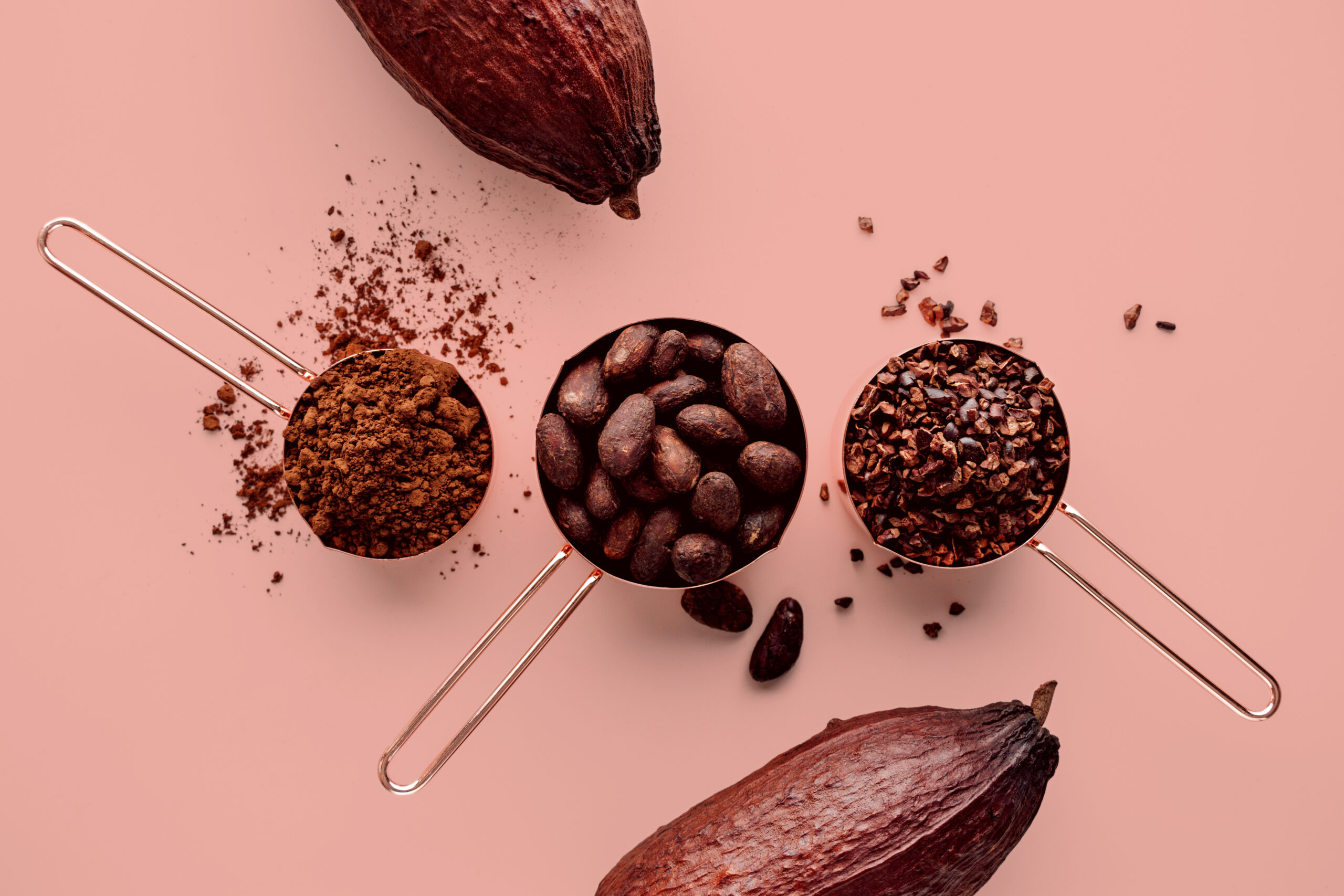
NOW FOR 9 REASONS WHY CHOCOLATE, OR MORE SPECIFICALLY COCOA, IS GOOD FOR YOU:
1. COCOA MAY HELP PREVENT MEMORY LOSS
Scientists at Harvard Medical School suggest that drinking two cups of hot chocolate a day may keep the brain healthy and prevent memory decline in older people by preserving blood flow in working areas of the brain.
The team tested the memory and thinking skills of 60 older people before and after a 30-day period drinking two cups of cocoa per day. Half of the participants had cocoa high in antioxidant flavanol, the others had a low-flavanol version.
They found that participants with impaired blood flow showed a significant improvement in memory and speed of brain function if they had been drinking the standard flavanol-containing cocoa.
So, a cup of cocoa and a good night’s sleep has even more benefits than previously thought!
2. COCOA MAY REDUCE BLOOD PRESSURE
A review of numerous trials has found that consuming dark chocolate or cocoa may significantly reduce blood pressure. Even amounts as small as 6 grams have been shown to reduce blood pressure compared to eating a similar amount of white chocolate, which doesn’t contain the beneficial compounds found in dark chocolate.
3. EATING CHOCOLATE MAY MAKE YOU BETTER AT MATHS!
Foods containing high levels of cocoa flavanols, have been shown to increase blood flow to the brain which may improve performance in mentally demanding tasks. In a study of 30 adults, it was shown that they performed better in maths tasks, and felt more alert, on the days when they were given drinks containing high levels of cocoa flavanols than on days when they weren’t. So, a piece of dark chocolate when struggling with a difficult work assignment or exam may be worth a try!
4. COCOA MAY HELP CHRONIC FATIGUE SYNDROME
Hull York Medical School researchers found that chronic fatigue syndrome sufferers experienced symptom improvement with dark chocolate consumption over milk chocolate with added brown dye. They attributed this to increased serotonin levels from dark chocolate’s polyphenols. Plus, participants didn’t gain weight during the study. If you have chronic fatigue syndrome, consider incorporating a small amount of high cocoa content dark chocolate into your daily routine.
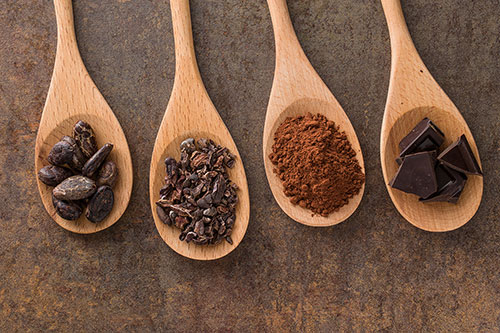
5. COCOA MAY IMPROVE CARDIOVASCULAR HEALTH
Flavanols in cocoa lower blood pressure, insulin, and ‘bad’ cholesterol, reducing heart disease risks. Cocoa’s flavanol compounds boost blood flow, potentially decreasing heart and vascular disease risks.
6. COCOA MAY REDUCE RISKS OF DIABETES
In another study on cocoa, one hundred people with type 2 diabetes were given either cocoa and milk, or milk alone twice a day for 6 weeks. Those who had cocoa showed a reduction in cholesterol and inflammation levels – likely to translate to less health risks overall.
7. COCOA MAY PROTECT YOUR LIVER
An animal study demonstrated that daily cocoa may reduce fatty liver disease associated with a high fat diet. Fatty liver disease is increasing due to the obesity crisis and can, in some cases, progress to cirrhosis. So, a cup of cocoa before bed may be a good choice as far as your liver is concerned.
8. COCOA MAY HELP REDUCE STRESS
As many of us know, stress increases chocolate cravings – well, more specifically, sugar and fat cravings. Eating 1.5 ounces of dark chocolate daily may lower stress and anxiety, backed by evidence. Note: We mean a moderate amount, not a big chocolate bar.
9. COCOA MAY ACTUALLY HELP WEIGHT CONTROL
Mice on a cocoa-rich diet had lower body weight compared to those on a cocoa substitute, emphasising cocoa, not sugary chocolate.
Science suggests indulging in chocolate isn’t necessarily guilty; it could benefit you. But if you prefer white or low-quality milk chocolate high in fat and sugar, try switching to high-quality dark chocolate for better taste and benefits.
Want to understand more about dark chocolate? Check out our Beginner’s Guide to Dark Chocolate.
